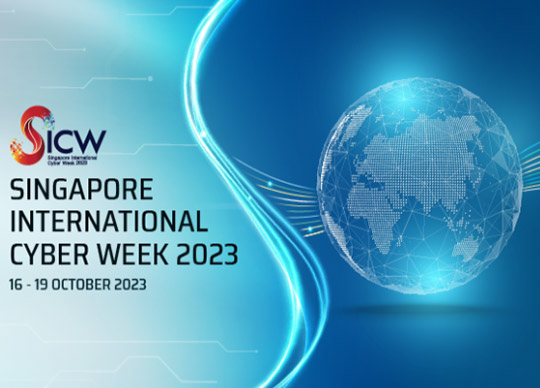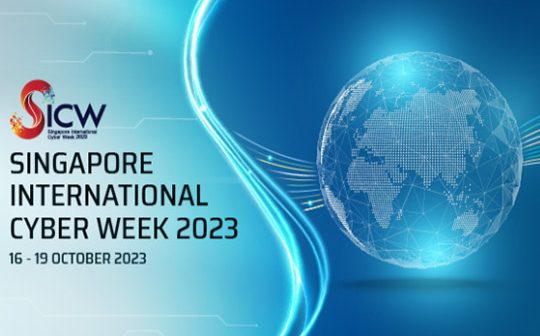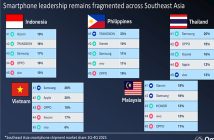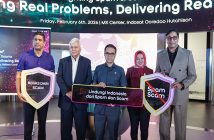
Strengthening Trust in the Digital Domain
United Nations Under-Secretary-General and High Representative for Disarmament Affairs Madam Izumi Nakamitsu, welcome back to Singapore, pleasure to see you again.
Introduction
Welcome to the Singapore International Cyber Week (SICW) 2023. Thank you for taking the time to come to Singapore and to be here with us.
This is the eighth edition of the SICW. We continue to hold this each year because of how important it is for you – political leaders, policy makers, cyber experts, academics, and industry leaders – from around the world to have a platform to exchange perspectives and to grow our relationships.
The digital domain is constantly evolving. In the meantime, we are still playing catch-up, trying to figure out what the rules and norms should be, who should be responsible for taking action, and how we can work together to solve common issues.
And this is even before the use of AI, the new frontier, becomes pervasive. But for us to answer any of these questions, trust is fundamental.
That is why tonight, I want to draw your attention to three areas where trust building in the digital domain is under considerable pressure:
a. First, between states;
b. Second, between governments and the tech industry; and
c. Third, in the public’s perception of the digital world.
Trust between states
Trust between states is strained, particularly in the digital domain.
We are now in a period of intense contestation. Strategic trust between the US and China is at an all-time low. The recent escalation of conflict between Israel and Hamas is tragic and undermines the stability of that region, and around the world.
The war between Russia and Ukraine has also not abated. There is a proliferation of exclusionary groupings, with countries blocking each other’s services, software, and hardware, citing national security. Trade, investment and supply chains are increasingly driven by geopolitics.
There is a risk that competition will crowd out cooperation.
We see this dynamic playing out in cyberspace. It is not surprising that in wartime, countries engage in cyber operations to disrupt services, and cyber espionage to obtain information that can give them an advantage.
But this is also happening in peacetime, for example, pre-positioning in Critical Information Infrastructure, ostensibly to collect information and lay the groundwork for disruptive cyberattacks which can interrupt essential civilian services. Such activities undermine trust.
A deficit of trust makes it harder for states to work together on common issues.
This is especially worrying in the digital domain, as many issues require collective action.
Take cybercrime for example: perpetrators and their victims do not need to be in the same jurisdiction. In fact, very often, they are deliberately in different jurisdiction.
This is the case for most of the online scams with victims in Singapore. States are limited in what they can do on their own to tackle cross-border cybercrime. Cooperation is essential but difficult to achieve without a foundation of trust.
Will we see a world united by the promise of the internet and digital technology, or will we have a divided world, including in the digital domain?
The establishment of a rules-based multilateral order in cyberspace will go a long way towards buttressing trust between states.
There is a general consensus on what constitutes responsible state behaviour in cyberspace, but the crucial task of codifying this into rules and norms remains.
The work of the UN Open-Ended Working Group (OEWG) on the security of information and communications technologies, which Singapore supports, is an important part of this effort. We look forward to hearing the Under-Secretary’s comments on this later.
Trust between governments and the tech industry
The second concern is the relationship between governments and the tech industry.
Large tech companies wield an unprecedented level of influence over economies and societies.
At the same time, they enjoy a remarkable degree of freedom from regulation and accountability for their activities and the content they carry.
Each company understandably competes for market dominance and the network multiplier advantage it confers.
They own and control significant parts of the technology stack that the majority of the world depends on, and hold vast amounts of data. Their revenues exceed the GDPs of many countries.
This has made Big Tech pivotal stakeholders in the digital domain.
Many of the challenges we face in the digital domain, such as cybersecurity and online safety, can only be solved with the participation and cooperation of Big Tech.
But building trust between Big Tech and governments is challenging.
In some cases, for clearcut reasons, they boycott specific countries, for example Russia for invading Ukraine.
But even in routine ways, Big Tech make their own decisions regarding whether and what services to provide or withhold, the content they carry, and the ranking algorithms to present content to users.
Their interests may not always align with public or national interests.
When implementing their policies and “community standards”, Big Tech also have to navigate boundaries of what countries consider important or appropriate in their own context.
Big Tech understandably are driven by commercial considerations. They possess enormous market power.
So it is important for Big Tech and countries to find respectful and constructive ways to manage policies and regulations that countries may find necessary, but which Big Tech consider unfavourable to their operating and commercial interests.
Even where governments recognise the need to work with Big Tech, they may not necessarily know how best to do so because issues of national security, defence, and social governance have long been the exclusive domain of governments.
This is further complicated by the fact that for the vast majority of countries, Big Tech are foreign entities.
Some jostling is inevitable, and responsibilities will have to be revisited, but a healthy accommodation between governments and industry is essential for us to tackle the issues we face in the digital domain.
Public trust in the digital domain
The third area of concern is public trust in the digital domain. If we do not resolve the first two issues, very often it has an impact on this third domain, which is public trust in the digital domain.
Most, if not all, of us recognise the benefits of digitalisation and the digital economy.
The digital economy, for example in Southeast Asia, is projected to grow up to five-fold, to $1 trillion by 2030. To realise this potential, the public must be confident about engaging in the digital domain.
The digital highways and streets must be safe for us to venture out on, including for children and digital novices.
However, there is growing concern that online harms such as scams, ransomware, misinformation, and other malicious cyber activities are becoming rampant, rendering the digital world unsafe.
Cybersecurity vendors reported a 13% increase in ransomware incidents worldwide in 2022.
In Singapore, phishing cases reported to Singapore’s Cyber Security Agency (CSA) more than doubled from 2021 to 2022 to around 8,500, mirroring global trends.
Emerging technologies like generative AI have brought excitement and also concern in equal measure.
They can be misused by malicious actors to supercharge their activities.
Unethical use of these technologies can also cast doubt generally on the veracity of information in the digital domain, which is already plagued by fake news and disinformation campaigns.
The seeds of such distrust are already present: A 2023 report by Salesforce found that 43% of the consumers it surveyed across 25 countries did not trust companies to use AI ethically.
If public trust in the digital domain is lost, users may be reluctant to carry out digital transactions.
Citizens will not be able to reap the benefits of convenience and time-saving from the use of digital services.
And the economy will have to forgo the productivity gains, and the growth that comes from new digital services.
The repercussions will not be limited to economic activity. I give you an example.
Just a few years ago, countries were scrambling to contain COVID-19, a novel virus which was spreading rapidly.
The widespread use of smart mobile devices became a major boon because we carry them around with us all the time.
This enabled the rollout of online services or mobile apps for passing information quickly and also for contact tracing.
This would enable close contacts of infected persons to be alerted and isolated, helping to slow the spread of the virus.
In some societies, like in Singapore, we were able to effectively carry out contract tracing using these modern digital technologies because there was strong public trust in public institutions, and the digital services provided by these institutions.
People knew that this was for the common good and trusted that their digital information would be protected and treated responsibly by their governments. Lives were saved as a result.
In societies where public trust was lower, contact tracing efforts were not as successful; infections spiked dangerously, overwhelming healthcare facilities; and citizens paid the ultimate price.
There is no “one-size-fits-all” solution. Every society has its own context, culture, history, and challenges. But the goal of maintaining public trust in the digital domain is one we all share in common.
Conclusion
We have enjoyed great dividends from digitalisation – it has freed us from many of the limitations of geography, brought great economic benefits, brought people and societies together and changed the way we live and work.
It behoves us to preserve and strengthen trust in the digital domain. Otherwise, we may see many of these benefits reversed.
The challenge of building and maintaining trust in the digital domain is complex, but it is imperative that we work on it together.
Through tonight’s summit and the rest of this week, I hope that we will collectively achieve a better understanding of each other’s’ perspectives, recognise our shared interests in cyberspace, and work towards building the trust we need for a digital world and a better future.
We need safe streets and highways in cyberspace.
I wish all of you fruitful conversations in the coming week. Thank you very much.





